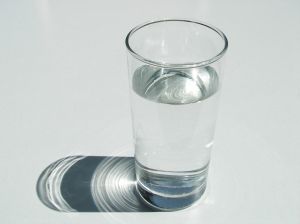The Priceless Nutritional Value Of Water
While many of us are concerned about maintaining a healthy, balanced lifestyle, it can be very easy to overlook the important nutritional value of water. Whether you are looking to lose weight or simply wish to maintain a healthy diet, you are likely to be aware about proteins, carbs and fats, but you may not realize the important value water can add to your life and overall health.
Why Water?
With the range of sports drinks, sodas and juices available on supermarket shelves and stores, you may consider water to be a boring choice. While bright colored drinks may seem like a more vibrant option, good quality water is still the best choice, whether you lead an active or sedate lifestyle. Water contains no calories, sugars or artificial colorants, and although tap water may contain contaminants, a good quality water filtration system can ensure that you have access to economical, yet high quality water.
While sodas and sports drinks can cause a blood sugar spike, water offers a number of advantages to health and hydration, which bottled beverage do not. Water flushes out waste and toxins, oxygenating the blood. Proper hydration through water can also boost the immune system, help digestion, keep joints lubricated and improve concentration. Water can also be a great aid to weight management and can help you to feel fuller without feeling lethargic. Additionally, since a 20 ounce soda can contain approximately 240 calories, switching to water can reduce your caloric intake drastically.
How Much Water?
The Institute of Medicine advises that only 20% of your total water intake is obtained from the foods you consume. It is recommended that women have a total water intake of 91 ounces, while men intake 125 ounces. There is no upper limit to the amount of water you can consume, since it contains no calories or fat. In fact, research has shown that water can make you feel fuller for longer. Often hunger pangs are actually a symptom of dehydration. It is important to drink water regularly throughout the day, since feeling thirsty is actually a sign that your body is already dehydrated. Other symptoms of mild dehydration include dry skin, constipation, headaches, lack of concentration and fatigue.
The Importance of Good Quality Water
Another important aspect of the priceless nutritional value of water is the quality of the water itself. Poor quality water often contains contaminants such as bacteria, heavy metals or excess minerals, which can negate the health benefits. Fortunately, there are a number of water treatment options and filtration systems available for domestic consumers. These can remove potentially harmful contaminants or unpalatable elements which can compromise the look and taste of the water. Many of these systems offer a cost effective solution, providing high quality water for far less than the cost of bottled water. Additionally, you will not have the environmental concerns about plastic bottles occupying landfills or toxins such as BPA leaching into the water from a poor quality plastic bottle. Domestic water treatment solutions are available as under sink units or whole house systems.
About The Author:
Greg Scott is President of Valparaiso based Miracle/EcoWater Systems, the premier water conditioning company in Northwest Indiana serving the Lake, Porter and LaPorte County areas. A 3rd generation water treatment professional, Greg grew up in the family owned business started by his grandfather in the late fifties. He has made water treatment his life and under his direction and high-standards, the company’s water treatment experience, knowledge, and products are unrivaled in region.
Back to
